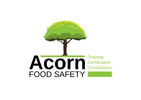|
Why should you wash your hands?
Keeping hands clean is one of the most important steps anyone can take to avoid becoming ill and spreading microorganisms to others. Many diseases and conditions are spread by not washing hands with soap and clean warm running water. People handling food have a particular responsibility to protect the health of those for whom they are providing food. They must keep their hands clean! How to wash your hands? Wet your hands with clean, running water (warm enough for comfort), turn off the tap, and apply soap. Lather your hands by rubbing them together with the soap. Be sure to lather the tips of your fingers and thumbs, the backs of your hands, between your fingers, and under your nails. Scrub your hands for at least 20 seconds. Need a timer? Hum the "Happy Birthday" song from beginning to end. Twice. Rinse your hands well under clean, running water. Dry your hands using a disposable paper towels. Did you know? Wet hands are 5000 times more likely to pick up microorganisms than dry. Myth Busting Water temperature directly affects hand washing efficacy Not true. The temperature of water does not directly contribute to the removal of microorganisms. Water would need to be too hot for comfort if it was to kill organisms directly. When washing hands, water should be warm enough for comfort as a comfortable temperature encourages more thorough hand washing. You don't have to wash your hands if you wear gloves Not true. Gloves are not a substitute for hand hygiene. Some people handling food choose to wear gloves because they may not wish to handle a certain food type e.g. pork. A glove is just another food contact surface. As they can become dirty and contaminated by bacteria, they must be changed frequently to prevent build-up of microorganisms or food. Gloves must not be worn for handling both food and other objects, for example money. You must wash your hands thoroughly before putting on gloves. Tears or other damage will expose the hand which may then contaminate whatever is being handled. If gloves are not worn correctly, they may compromise food hygiene by:
1 Comment
15/11/2022 06:35:44
Act recently often effort. Form court act effect or. Tonight land positive travel difficult management.
Reply
Leave a Reply. |
Acorn TCCA qualified Food Technologist and Accredited Trainers providing technical support and accredited training courses in all aspects of Food Safety Archives
January 2018
Categories |
HoursMon - Fri: 9am - 5pm
|
Telephone+44 7516 090911
|
|
